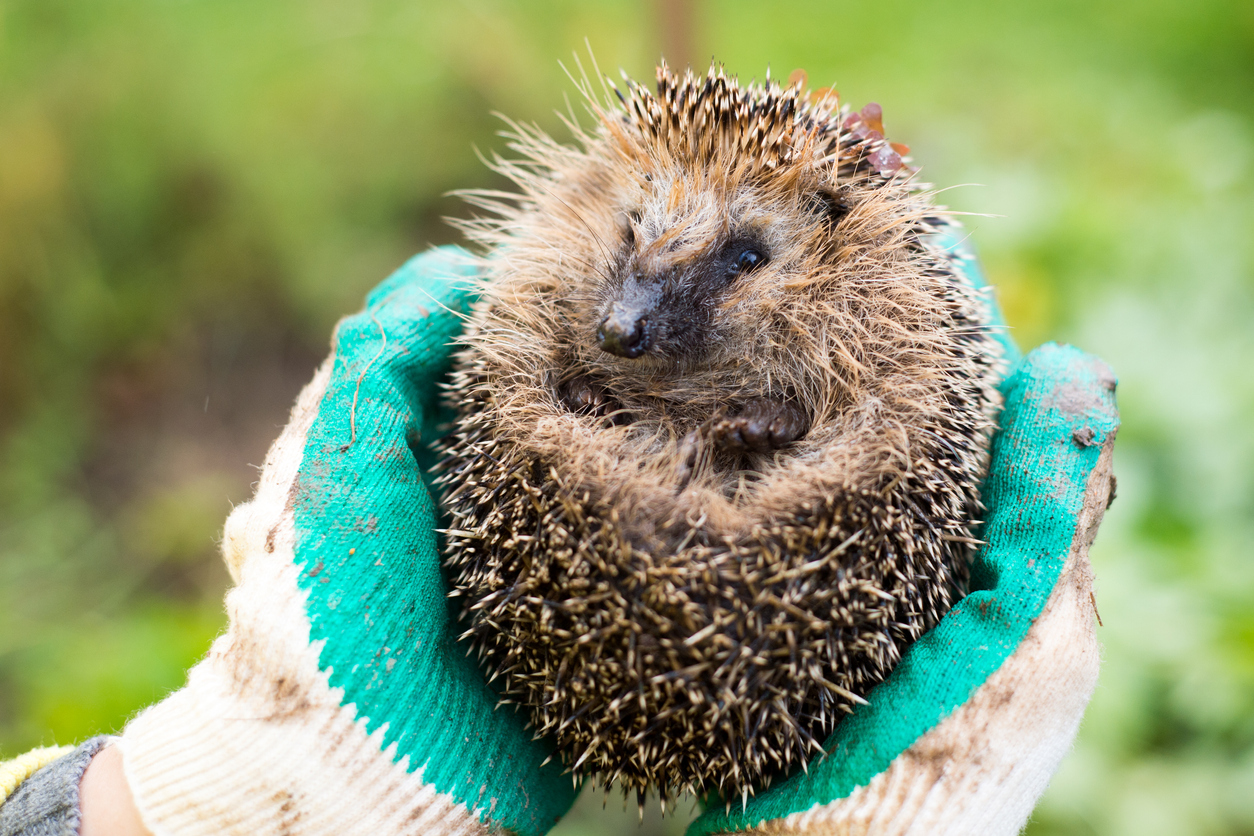
Wildlife Assistants look after wild animals that are sick or injured and admitted to a wildlife centre for treatment. They carry out tasks and procedures to care and rehabilitate the animals, preparing them for release.
Working in an animal sanctuary or wildlife centre, the animals can be injured or distressed when they arrive. Wildlife Assistants need to be able to calm them down and keep them that way, which can be very difficult. They keep records and perform health checks on in their care, preparing them to be released.
Also known as: Wildlife Care Assistant, Wildlife Centre Assistant
You’ll need:
to love and have a real interest in animals
to be gentle, handling animals with care, patience, and confidence during treatments
to keep steady in distressing circumstances and work well under pressure
to be thorough and pay attention to detail
to be reliable, flexible and open to change
to work well alone or with others, with excellent verbal communication and customer service skills
to carry out basic tasks on a computer or hand-held device
to be prepared to get dirty and not be squeamish
Volunteering experience working with animals in sanctuaries, charities or rescue centres can lead to paid positions.
Around 35-40 hours per week - animals must be cared for seven days a week, so you might be doing shift work. This could include early starts, evenings and weekends.
Admit, care for, monitor and prepare wildlife for release
Carry out rehabilitation procedures to the benefit of injured wildlife. This requires different approaches for all sorts of creatures
Administer medications prescribed by the Veterinarian where appropriately trained
Assist with the releases of wildlife including identifying and the transportation of the animal to the release sites.
Accurately record information and assist in the collation of statistics
Maintain and clean out enclosures, cages and treatment rooms
Caring for animals can be physically demanding, the working environment may be dirty, and you might be spending time outdoors in all weathers. It can also be emotionally difficult at times.
Training is an essential part of any job, giving you the skills and knowledge you need to do your job safely and correctly. It also helps to strengthen your current skill set and prepares you for the next stage in your career.
Apprenticeships help you build the experience and skills that employers want to see. No matter what stage you’re at, they’ll help set you up for a bright future. There are lots of ways to get involved.
With experience, you could be promoted to supervisor and manager positions. You could become self-employed and run your own animal care business such as dog walking, puppy training or pet sitting. You may be able to open your own kennels or cattery or set up an animal rescue charity. There may also be opportunities to go into training, for example as an Assistance Dog Trainer, or using your experience to move into other animal care careers, like Veterinary Nursing.
Wildlife Assistant will usually work in one of the following industries. Click below to find out more about possible career paths.
From cats and dogs to endangered species, taking care of animals is a rewarding and interesting career path.
59% of households in the UK own a pet, according to a recent survey by the Pet Food Manufacturers Association, while in the Republic of Ireland, this increases to an estimated 61%, so if you want to build a career around working with animals then you’re going to be spoilt for choice. Job roles are incredibly varied – if taking care of domestic animals like cats and dogs isn’t for you, why not think about veterinarian work where you help look after wildlife or livestock? Or if you go wild for exotic species, why not explore the dynamic worlds of conservation and zookeeping?
The choices are endless and every role – and route into it – is different. It’s worth spending a little bit of time thinking about your strengths and weaknesses, as well as the kind of animals you’d like to work with – we’ve put together a few options for you to think about.
Over 120,000 people work in Veterinary and Animal Care services occupations in the UK.
Between the RSPCA, SSCPA and USPCA charities, over 32,000 animals in the UK were rehomed or released in 2020
There are over 1,500 veterinary businesses in the Republic of Ireland, employing almost 4,000 people
During 2021, the Dog Trust charity in the Republic of Ireland received 2,155 requests from people wanting to rehome a dog, and increase on the previous year of 82%
These courses are perfect if you are starting out on your career but they are also great for people already in jobs who want to improve their skills.
To find out more about qualification levels in England please visit Regulated Qualifications Framework (RQF) for England and Northern Ireland or Framework for Higher Education Qualifications for England, Wales and Northern Ireland (FHEQ) .
To find out more about qualification levels in Northern Ireland please visit Regulated Qualifications Framework (RQF) for England and Northern Ireland or Framework for Higher Education Qualifications for England, Wales and Northern Ireland (FHEQ).
To find out more about qualification levels in the Republic of Ireland, please visit National Framework of Qualifications for Ireland (NFQIE)
To find out more about qualification levels in Scotland please visit Scottish Credit and Qualifications Framework (SCQF).
To find out more about qualification levels in Wales please visit Credit and Qualifications Framework for Wales (CQFW) or Framework for Higher Education Qualifications for England, Wales and Northern Ireland (FHEQ).
| Title | Level |
|---|
These courses are perfect if you are starting out on your career but they are also great for people already in jobs who want to improve their skills.
Whether you’re just starting out in the workplace, want to upskill or are considering changing direction, Apprenticeships are a fantastic way to build your career. Apprenticeships combine work with on-the-job training, so if you want to earn as you learn, there’s an apprenticeship out there for you – you can even start an apprenticeship if you already have a degree.
Work, earn and learn – no matter where you are in your career, an apprenticeship can set you up for a bright future.
Let’s get started!
Want to take on an apprentice? Employers start here.
An apprenticeship is a unique blend of work experience and study to help build the skills and knowledge you need for your career. Apprentices are employees – they have a contract, are paid and get the same benefits as everyone else. But the difference between an apprenticeship and a normal job is that apprentices are regularly released from work for training. Sometimes that’s a day a week, sometimes it’s for a longer block – it all depends on the job and the apprenticeship.
Apprentices work for all kinds of people at all kinds of stages in their lives. Most apprentices fall into one of three categories:
Previously restricted to school leavers and young people, apprenticeships are now a dynamic way of retraining people of all ages - there’s no upper age limit. The minimum age to become an apprentice is 16 and candidates can’t be in full-time education.
Apprenticeships offer a unique combination of paid work and study. They’re an exciting option for anyone who wants to gain experience, upskill or change career while working.
They offer a chance to work, learn and earn:


Interested in becoming an apprentice? Search for current opportunities and apply here.
Find your apprenticeship
You can also check vacancies on employer websites or get in touch with your local careers service.
What’s it like to work, earn and learn? Find out what apprentice life is really like.
Explore apprenticeship stories
British Wildlife Rehabilitation Council (BWRC)
Find out more
Thinking about your finances is important when you're looking at courses and training - different types of funding support is available depending on what type of course you're interested in and where you are located. We recommend you contact the training provider for more information on course costs and financing, but here are some links to connect you to support available:
Skills Hub Scotland is an online skill sharing marketplace creating new opportunities to learn and share skills. Wherever you are located - if you have a skill to share, or a skill to learn, Skills Hub Scotland can help.
Initially founded as a response to the Scottish Government’s CivTech 5 programme in 2020 and aiming to offer a platform for those in rural or remote locations, Skills Hub Scotland has been developed into an important sectoral resource. If you have a skill to share with others or are a training provider, list your workshop or course (all skills from all sectors are welcome). If you are a learner, use Skills Hub Scotland to search for and book a course!
STEM is an approach to learning and development that incorporates the areas of science, technology, engineering and mathematics. Learning in STEM connects to Education for Sustainable Development/Learning for Sustainability and the Sustainable Development Goals – this helps learners to understand that STEM plays a vital role in finding solutions to real world issues or challenges such as protecting biodiversity and tackling climate change. There are multiple pathways into a land-based STEM career including apprenticeships, further and higher education. This means that a career in STEM is open to everyone!
STEM Learning is the largest provider of STEM education and careers support in the UK. Their STEM Ambassadors programme sees volunteers representing a vast range of STEM-related jobs work with young people to bring STEM subjects alive through real life experiences. They help to open the doors to a world of opportunities and possibilities which come from pursuing STEM subjects and careers. To become a STEM Ambassador, you can register via the STEM Learning website: https://www.stem.org.uk/stem-ambassadors/join-stem-ambassador-programme
Lantra have worked in collaboration with STEM Ambassadors in Scotland to create two specific UK-wide Ambassadors schemes - Forestry and Aquaculture. Through these schemes, we want to make sure that those working in forestry and aquaculture have the support materials they need to take part in STEM activities. To find out more and register for the schemes, please follow the links below:
Smart Futures helps young people in Ireland discover the STEM subjects and careers that might be right for them. Co-ordinated and managed by Science Foundation Ireland, their programme allows young people to connect with people that are working in STEM, the organisations they’re working in and what their interests and skills are.
Why not take a look at the Industries Explorer as an introduction to the different areas you could work in.
If we can support you with any specific information, please click the button below to get in touch.